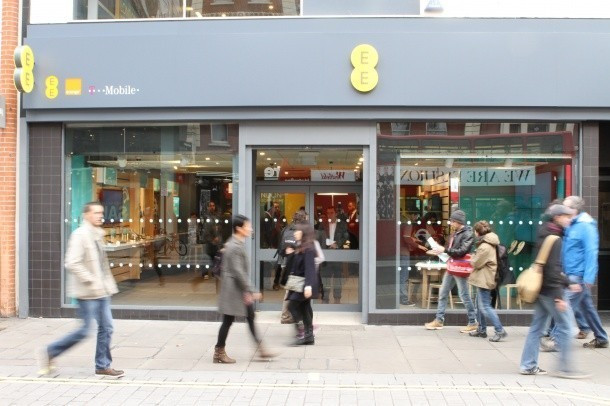Just 10% of Corporate Customer Using EE's 4G Network
EE launched its superfast mobile broadband network at the end of October but by the end of 2012 just one in ten corporate customers were trialling or using the service.

4G was launched to much fanfare last year, with EE beating all the other major UK networks to the punch by rolling out the next-generation mobile network eight months ahead of anyone else.
Today the company published its financial results for 2012, and while there are no hard figures for the number of people the company has signed up to the 4G service, the company did give some indication of how many people were using the service.
The company said it added 201,000 new postpay customers in the final three months of 2012, but during the same period in 2011 when it didn't have 4G on offer, it added 313,000 new postpay customers.
The press release accompanying the announcement said EE was seeing "seeing solid early 4G momentum" upgrading T-Mobile and Orange customers to a 4G contract.
EE drew a lot of criticism in the press and elsewhere for the price of its 4G plans which were seen as too high by many.
The business sector is an area where EE sees a lot of potential for 4G and the company says it is seeing "early 4G momentum with business customers" across a range of industries and businesses sizes.
However it also revealed that the number of corporate customers "trialling or using" 4G was slightly above 10 percent of its corporate customer base. Among the customers trialling or using the service include Gatwick Airport, Microsoft, Morrisons, Sony Music and TNT Post. It also revealed that one in four of its new SME customers are opting for 4G services.
Not surprising
The fact EE has not revealed hard figures for the number of people who have upgraded to 4G or taken out a new contract with the network for the sole reason of having 4G, is not surprising.
Adoption rates are likely to be low at this stage as people are still figuring out what the service is for, and also considering that just 43 percent of the country is currently covered by the superfast network, rising to 55 percent by June according to EE.
And it will be in June when we are likely to see the first of the 4G networks from EE's competitors, with all networks currently involved in Ofcom's 4G auction, the first round of which is reported to have finished with results likely to be published at some stage this week.
Worrying
What may be worrying for EE however is the adoption rate of 4G for businesses. Back in November, Martin Stiven, VP for Business at EE told IBTimes UK that the new service was the "final piece of the jigsaw" for businesses.
"What my customers tell me is that there is a pent up demand, because of the huge increase in online applications, social media, cloud computing, all of the things that are happening in IT. You think of the power being put into smartphone devices, the big frustration for businesses in particular, is how do I join the fixed IT world into this super smartphone world," Stiven said at the time.
Stiven also said that his sales teams had been on the ground in the months leading up the launch talking to their corporate and business customers explaining what 4G was and what it could do for their businesses.
Therefore it will no doubt be a disappointment that just one in ten are using or trialling the service. It is interesting also that EE talks about customers who are trialling the service, as it is clear some customers are simply not convinced that 4G will make a difference to their business.
Elsewhere in EE's final year results, it is clear to see that the smartphone boom shows no signs of abating, with 94 percent of new contract customers choosing a smartphone in the last three months of 2012, up from 84 percent the previous year.
In the last quarter of 2012, EE also saw the majority (52 percent) of its customers signing up for a postpay contract, which helps drive higher revenues for the company.
© Copyright IBTimes 2025. All rights reserved.






















